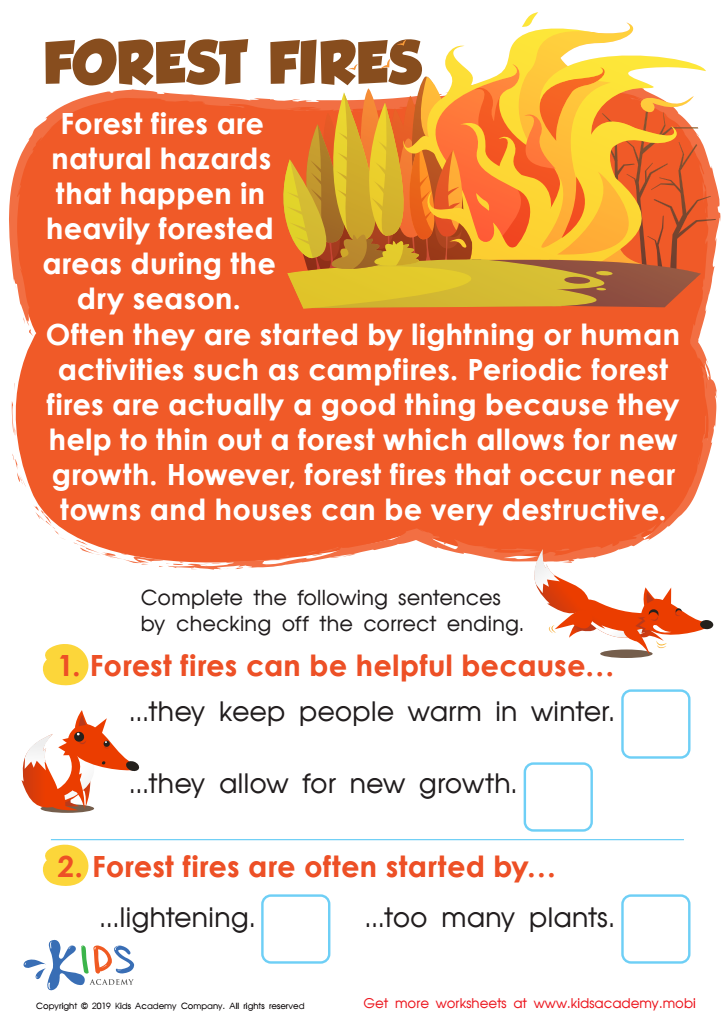Understanding ecosystems Our Planet and Environment Worksheets for Ages 5-8
4 filtered results
-
From - To
Explore the wonders of ecosystems with our engaging “Understanding Ecosystems” worksheets designed for children ages 5-8. These interactive activities introduce young learners to the intricate relationships between living organisms and their environments. Through fun illustrations and hands-on exercises, students will develop a foundational understanding of biomes, food chains, and the importance of biodiversity. Our printable resources encourage critical thinking and link ecological concepts to real-world situations, fostering early environmental awareness. Parents and educators will find these worksheets invaluable for enhancing science lessons while promoting curiosity about Our Planet and Environment. Inspire the next generation of eco-conscious thinkers today!


Ecosystems: Assessment 1 Worksheet


Forest Fires Worksheet


Ecosystems: Assessment 2 Worksheet


Animals and Plants: Assessment 1 Worksheet
Understanding ecosystems is vital for children ages 5-8 as it lays a foundation for their relationship with the planet and instills a sense of responsibility towards the environment. At this formative stage, children are naturally curious about the world around them. Teaching them about ecosystems helps them grasp basic concepts of how living organisms interact with each other and their environment.
Parents and teachers play a crucial role in nurturing this curiosity and can stimulate an interest in nature by exploring topics like food chains, habitats, and biodiversity. This understanding not only fosters respect for all forms of life but also encourages critical thinking and problem-solving skills as children learn to recognize the impacts of human actions on the environment.
Furthermore, awareness of ecosystems can inspire children to practice sustainability and make eco-friendly choices from a young age. By integrating these concepts into everyday learning, we also prepare them to become knowledgeable stewards of the Earth. In times of climate change and environmental challenges, early education about ecosystems equips children with the mindset to advocate for positive change, ensuring a healthier future for themselves and the world. Engaging with these topics creates conscious, informed individuals who can effect transformation.
 Assign to My Students
Assign to My Students




















